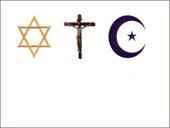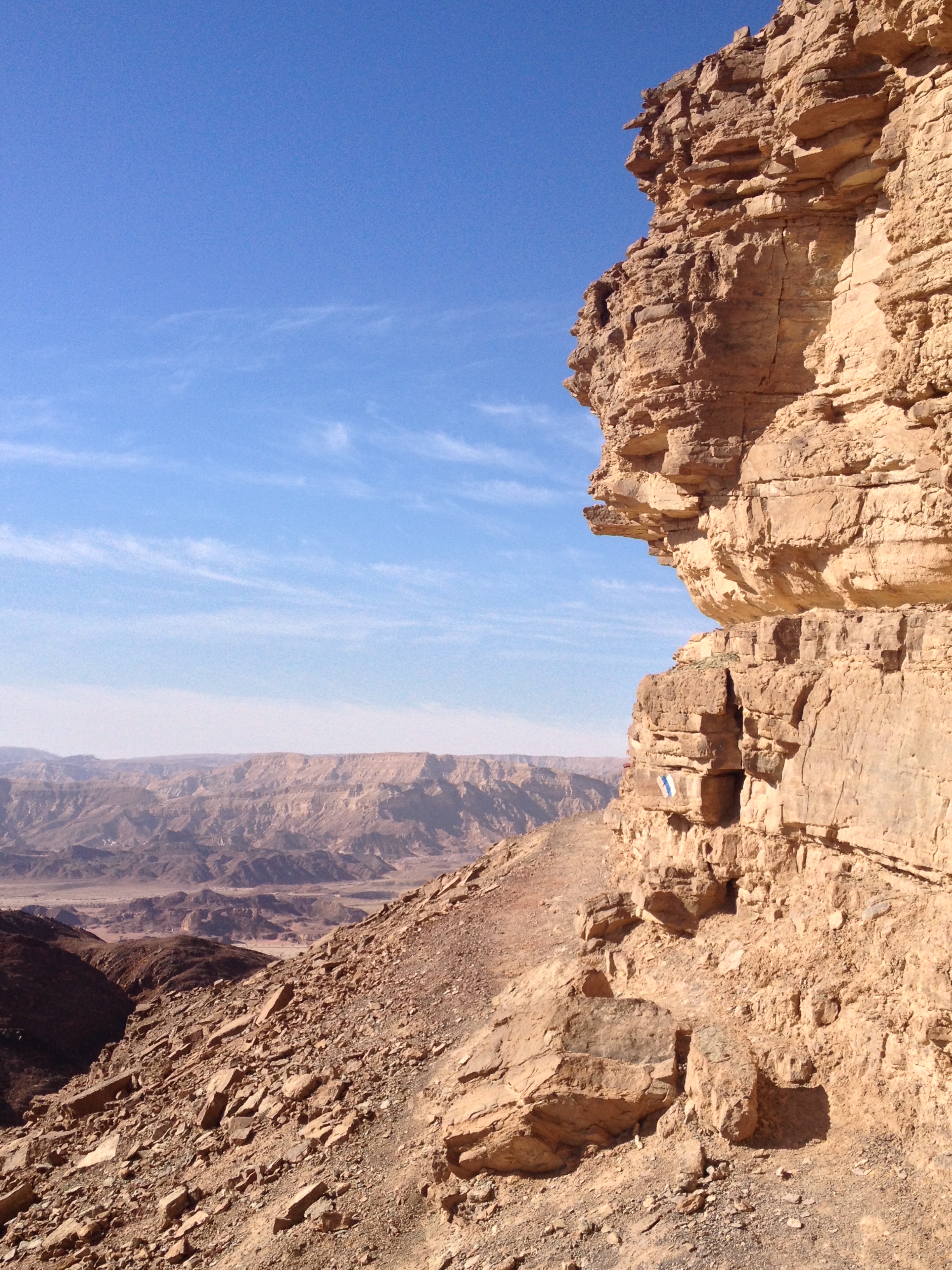Interfaith Monologues
 It’s a sad day when interfaith dialog leaves some participants feeling less motivated to work on behalf of the other.
It’s a sad day when interfaith dialog leaves some participants feeling less motivated to work on behalf of the other.
Maybe there are times not to ask certain questions; maybe there’s such a thing as “too much sharing.”
But I don’t really believe that. I think the problem wasn’t only what was said – although some difficult things were said – as much as how it was said, and the lack of relationship to provide a context.
I recently returned from a Jewish – Christian – Muslim / Israeli – Palestinian interfaith dialog in Turkey. I have some difficult things to say about the meeting, so I will leave my comments “anonymous” and not mention any specific groups, sponsors, or individuals. But I learned some things about “interfaith dialog” and the Israeli-Palestinian situation that I think are worth sharing.
The first problem was that instead of having dialog, we had a series of monologues. My own experience is that in any group larger than about six or seven people, dialog falls by the wayside because you have to wait so long for a turn to speak you are 1) not responding to what the person just before you said, and 2) tempted to ramble on for a long time for it may be a long time before you get to speak again. If I were running the conference, I would have had people meet in small interfaith groups – maybe two from each religion. Language may have been a problem as we would need more translators, but there were enough people who spoke enough different languages I think we could have managed. But I understand one of the Palestinian organizers does not like that kind of dialog because it leads to a more personal relationship between Israelis and Palestinians which smacks of “normalization.” Fear of “normalization,” however, can make real dialog impossible.
We all know that Israelis and Palestinians have very different narratives regarding the events of 1948 and the years before and after. To Israelis, coming home to Israel after 2,000 years of exile is a miracle; to the Palestinians our return is the “Nakba,” the catastrophe, that led to their displacement. You can read more about the different narratives here.
So here’s one of the places we got off track. The Jews present at the gathering were all rabbis, all peace activists, all people who desperately want to see peace between Israel and Palestine. We have all “heard” the Palestinian narrative, but most of us have not accepted it because we are wed to our narrative. One of my colleagues wanted to know that the Palestinians had heard OUR narrative and he asked a difficult question: “I acknowledge your right to have a country and live in the West Bank. Do you acknowledge my right to have a country and live in Israel?”
The answer, from an Israeli perspective, was very disappointing. In short, it was “no.” They accept that the Israelis are powerful and are not going back to “where we came from.” But they still believe that we really should “go back to where we came from” and leave them alone. All the stuff of 2,000 years of longing for a home, etc., does not seem to move or influence them at all. They still see us a colonialists who dropped in from the sky, never mind that a very large number of our people came from Libya, Iraq, Yemen, Iran, and other places to which we cannot return. Not to mention the many thousands who have been in Israel for hundreds if not thousands of years; there has been a continuous Jewish presence in Israel since the first Jew came to Israel, although the numbers have waxed and waned with the political and economic situation.
The fact that they still see us as colonialists is very de-motivating for an Israeli peace activist. Why should I expend effort to support the rights of someone who does not support my right to live in a country where I have made many sacrifices to live?
If Tel Aviv has no more legitimacy than Maaleh Adumim (a West Bank settlement), why should I even consider for two seconds giving them Maaleh Adumim? If we agree that Israel has a moral right to land within the Green Line, and no such right to land outside the Green Line, I as a Jew could argue we should give them land outside the Green Line. On the other hand, if the Green Line makes no difference morally, if our presence truly only comes from force, not from any moral claim to any of it, than we set our borders strictly on the basis of that force, and we don’t need to give the Green Line any consideration. UN Resolutions pushed through by Arab states don’t mean much to us; MORAL law, however, does make a big difference to us.
You are likelier to go out and work on behalf of someone who is your friend than you are for someone who is a stranger. Sadly, instead of making Muslim friends, I left the meeting mostly feeling a bit pushed away. I have a colleague who spends his days going out to the West Bank defending Palestinian farmers; over coffee he said “if they feel I should ‘go back home’ why the hell should I risk my neck defending their rights?”
The worst thing in Israel is to be a “friar,” which is not some kind of monk, but means “sucker.” This kind of discussion left us feeling we are friars for wanting to help Palestinians.
Now that I’ve got all that off my chest…a little more perspective.
It’s silly for us Israelis to keep asking Palestinians to give us the stamp of “legitimacy.” It’s not going to happen. Not now anyway. They are living under a military occupation that disrupts their lives every day. Most Israelis they encounter are soldiers, and thanks to the biases of the organizer, the people who were at the meeting aren’t any closer on a personal level to any Israelis. But we don’t need them to make us legitimate. Our legitimacy comes from God and the political realities of the founding of the State and the subsequent wars to defend ourselves.
And I’m glad that we have a strong army to defend us from Palestinians who just as much deny us Tel Aviv and Maaleh Adumim, even though I’m sad we need that protection.
It’s enough that they accept we are here to stay. They don’t have to like it. And they do accept that. Not considering our presence “legitimate” does not mean if they had power they would kill us all or drive us all into the sea. It does, however, mean they probably would take back that house in Lod to which they still have the keys. OK, I can understand that.
- To my fellow Jewish Israelis, I would say stop seeking legitimacy from the Palestinians. It’s enough that they recognize us as a state, they don’t have to recognize us as a “Jewish” state. See my post “Do Palestinians Have to Be Zionists” for more on that subject.
- To my Palestinian brothers, I say please try to find a way to help us help you. I don’t know if it’s in how you phrase what you have to say, how you present it, or just that we need more of a personal relationship. But give me something that shows we are not wasting our time in an effort to find a just and lasting peace between our peoples.
I remain optimistic that peace will come. I am more pessimistic in that I’m not so sure it will be in my lifetime…but as Rambam tells us, “even though he may tarry, I believe with complete faith in the coming of the Messiah.”
Shabbat shalom from the City of Peace…
Reb Barry
An important postscript: None of our problems were about religion; we all agree on a shared future vision of Jerusalem at peace, everyone with freedom of worship at their holy places, etc. Our problems were about the Israel-Palestine dynamic, not the Jewish-Muslim-Christian dynamic. I feel affirmed in my belief that religion can help; the problems in our discussion weren’t religious issues, they were political issues.

